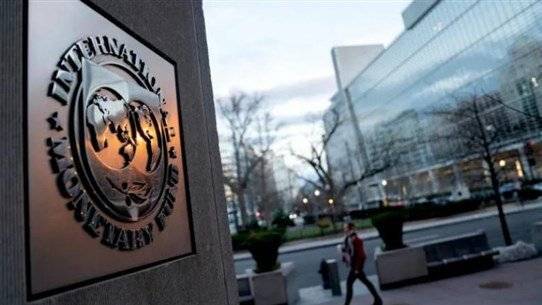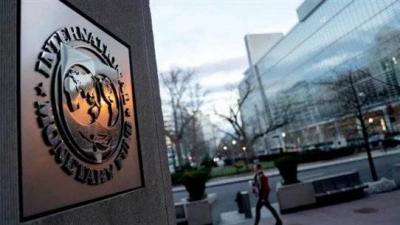The International Monetary Fund (IMF), which arrived in Lebanon yesterday, has begun a new round of meetings that will last for three days with Lebanese officials. As known, the IMF delegation, led by Ernesto Ramirez, is here to discuss recent developments and assist in accelerating the implementation of the measures agreed upon under the staff-level agreement of April 22. This was anticipated beforehand, but what is unacceptable is the IMF's return to continue discussions with Lebanon at a time when the government has failed to meet any of its demands, such as the approval of the banking secrecy law not signed by the President, the budget bill stalled due to parliamentary objections to its contents, and the lack of an economic recovery plan.
Yesterday’s meeting with the IMF delegation was with the Minister of Finance in the caretaker government, Yusuf Khalil. A working session was held, including the Director General of Public Finances George Maalouf, the Director of Revenues Louay Al-Haj Shihadeh, and experts Claudine Korki and Nasreen Ali. They discussed negotiating topics related to the Ministry of Finance, particularly the overall framework and the 2023 budget, which Khalil clarified was the main focus of the meeting, highlighting the differences between it and the 2022 budget. The importance of addressing matters with great seriousness was emphasized, especially since the Fund's support for Third World countries or those threatened by poverty has decreased due to reduced capabilities to support them.
Additionally, the head of the IMF delegation met with the Speaker of the Parliament Nabih Berri in Ain Al-Tineh, where they reviewed the stages of dialogue between Lebanon and the Fund and the legislations completed by the parliament. Berri reiterated the parliament’s insistence on intensifying its efforts to accomplish what is required regarding legislative reforms and to cooperate with the executive authority in this regard while preserving depositors' rights.
Today, the IMF delegation will meet with the economic bodies in the afternoon to learn about their plan presented two weeks ago and listen to the explanations and calculations they based their plan on. Prior to the meeting with the economic bodies, an early meeting is scheduled with the Minister of Economy and Trade Amin Salam at eight-thirty in the morning.
But what is the purpose of the IMF's visit as long as Lebanon has not accomplished any demands? Usually, when an IMF delegation visits Lebanon for a new round of discussions, it continues to address "the points that were stuck in the previous round and sends a new memorandum to the IMF Management in Washington regarding what has been achieved in Lebanon," as explained by Samir Hamoud, the former head of the banking control committee. He pointed out that "one of the key outstanding issues since the last IMF visit has been the demand for reforms and the restructuring of banks, especially as the banking crisis deepens, prompting account holders to resort to force to retrieve their deposits, despite the difficulty in resolving this issue." Additionally, there is a need to assess the balance of payments, financial deficits, the decline of foreign reserves at the Central Bank, how the banking sector is evolving, the size of deposits, and reassess previous figures.
Hamoud noted the existing positive points in Lebanon, where "the country continues to operate, and deposits and loans have decreased, although ‘new dollars’ are entering the country albeit timidly. Yet, there is a state of denial among the government, banks, and the Central Bank that will not be beneficial if maintained." He stressed "the need for a bold confrontation of the problems we are facing, as it is true that the rights of depositors are sacred, but it is essential to know how to preserve and restore them realistically based on a solid foundation." He reminded that the IMF confirmed to the government that "the agreement with it is subsequent, not prior to preparing the required reforms and restructuring, and starting the steps that the state can achieve to commence the reforms."




